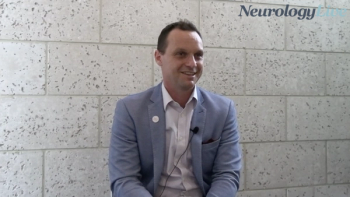
The assistant professor of neurology and neurosurgery at McGill University discussed the role of paramagnetic rim lesions as potential biomarkers of compartmentalized inflammation in MS. [WATCH TIME: 4 minutes]

Isabella Ciccone, Content Associate, NeurologyLive®, has been with the team since September 2022. Follow her on X @iciccone7 or email her at [email protected]

The assistant professor of neurology and neurosurgery at McGill University discussed the role of paramagnetic rim lesions as potential biomarkers of compartmentalized inflammation in MS. [WATCH TIME: 4 minutes]

The founder and executive director of the Sumaira Foundation talked about how the landscape of NMOSD treatment has drastically improved with FDA-approved therapies, while noting that accessibility and awareness remain significant challenges. [WATCH TIME: 4 minutes]
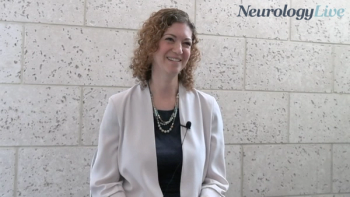
The assistant professor of medicine at the University of Toronto talked about emerging research on how prodromal symptoms may aid in the early identification of multiple sclerosis and neuromyelitis optica spectrum disorder. [WATCH TIME: 6 minutes]
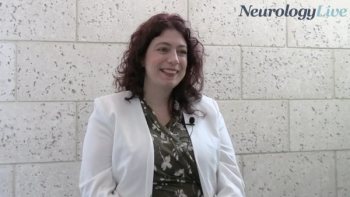
At the 2025 ACTRIMS Forum, the assistant professor of neuroimmunology at McGill University talked about examining immune cell signatures to track disease worsening in multiple sclerosis. [WATCH TIME: 4 minutes]

The autoimmune neurology program director at the University of Colorado highlighted the potential of CAR T-cell therapy for treating autoimmune neurologic diseases like progressive forms of multiple sclerosis. [WATCH TIME: 3 minutes]

The autoimmune neurology program director at the University of Colorado talked about the emerging use of CAR T-cell therapy, a breakthrough from oncology, now being explored in autoimmune neurologic diseases like multiple sclerosis. [WATCH TIME: 3 minutes]

The staff neurologist at the Mellen Center for Multiple Sclerosis at Cleveland Clinic discussed how the CALLIPER trial’s lower proportion of patients with gadolinium-enhancing lesions mirrors clinical practice more closely than other progressive MS trials. [WATCH TIME: 2 minutes]

The staff neurologist at the Mellen Center for Multiple Sclerosis at Cleveland Clinic discussed key insights into patient characteristics and lesion differences of the CALLIPER Trial in retrospect to other studies. [WATCH TIME: 4 minutes]

The executive vice president of research at National MS Society talked about how advancements in the field of neurology are shaping new approaches to diagnosing, monitoring, and treating multiple sclerosis. [WATCH TIME: 5 minutes]

The executive vice president of research at National MS Society discussed the role of compartmentalized inflammation, microglial interactions, and emerging therapeutic targets in multiple sclerosis. [WATCH TIME: 4 minutes]
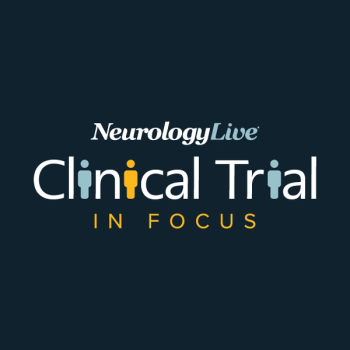
The phase 3 PERSEUS study will assess the efficacy of Sanofi’s investigational Bruton’s tyrosine kinase inhibitor tolebrutinib compared with placebo in delaying disability progression in PPMS.
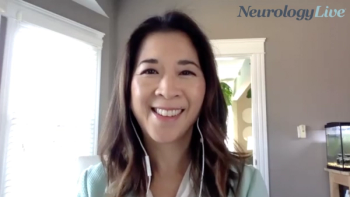
A physician assistant specializing in Parkinson disease discussed advancements in neurology aimed at enabling personalized treatment, continuous monitoring, and improved disease management. [WATCH TIME: 4 minutes]

Topline data of the D1AMOND study showed statistical significance between ecopipam and placebo for the primary as well as secondary efficacy end points in patients with Tourette syndrome.

Initial data reported from the FREEDOM-DM1 trial suggest PGN-EDODM1 has dose-dependent effects in patients with DM1, with further results from study cohorts expected in 2025 and 2026.

The associate professor in pain management and emergency medicine at UC San Diego shared her reaction to the FDA approval of suzetrigine, a selective, nonaddictive alternative to opioids for acute pain management. [WATCH TIME: 4 minutes]

Entrada Therapeutics has recently received FDA clearance to move forward with a clinical trial for its investigational Duchenne muscular dystrophy therapy.

A recent analysis identified potential safety concerns associated with pitolisant, sodium oxybate, solriamfetol, and modafinil, highlighting distinct adverse event profiles for each narcolepsy treatment.

The director of the Cerebrovascular Center at Mount Sinai discussed how results from the ESCAPE-MeVO trial highlight the impact of anesthesia rates, thrombectomy techniques, and the need for rigorous clinical trials to minimize bias. [WATCH TIME: 3 minutes]

Normotensive patients with narcolepsy on sodium oxybate had over 50% of a higher risk of new-onset hypertension or antihypertensive medication use compared with nonusers of the treatment.

The professor of neurology at the Geisel School of Medicine at Dartmouth talked about how the combination therapy involving meloxicam and rizatriptan may provide a more effective approach to treating migraine. [WATCH TIME: 6 minutes]

A recent study reported that the presence of oligoclonal bands in cerebrospinal fluid of patients with myelin oligodendrocyte glycoprotein antibody-associated disease may be associated with a higher risk of relapse.

Marketed as Wakix, the treatment is currently approved in the United States for excessive daytime sleepiness (EDS) or cataplexy in adults with narcolepsy and for EDS in pediatric patients aged 6 and older.
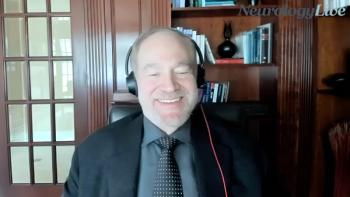
The director of the Montefiore Headache Center at Albert Einstein College of Medicine provided an overview of the drug profile for the recently approved migraine treatment AXS-07. [WATCH TIME: 3 minutes]

The movement disorder nurse practitioner at Stony Brook Medicine talked about the growing role of artificial intelligence in neurology and emerging treatments for Parkinson disease.
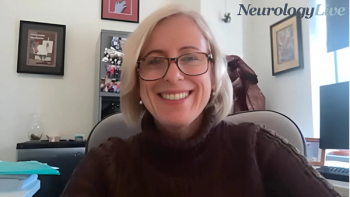
The Lillehei professor in stem cell and regenerative cardiovascular medicine at the University of Minnesota talked about the potential of investigating inducted pluripotent stem cells in neuromuscular diseases at MDA’s 2025 conference. [WATCH TIME: 8 minutes]

Findings showed that patients with epilepsy were significantly more likely to experience a range of psychiatric disorders, including depression, anxiety, and substance use disorders, compared with those without the condition.

The director of the Cerebrovascular Center at Mount Sinai highlighted key differences in patient selection criteria and trial designs that may influence how stroke treatment data is applied in clinical practice. [WATCH TIME: 5 minutes]
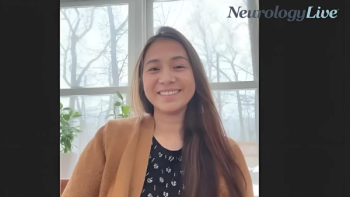
The nurse practitioner at the Parkinson’s and Movement Disorders Center at Stony Brook Medicine discussed the increasing role of artificial intelligence in neurology, specifically movement disorders. [WATCH TIME: 5 minutes]

A newly developed advanced fMRI-based classification model demonstrated efficacy in distinguishing multiple sclerosis from neuromyelitis optica spectrum disorder, potentially having the ability to improve diagnostic accuracy.

The associate vice president of community outreach at CureDuchenne talked about events like the 2025 FUTURES National Conference that aim to bring individuals from the Duchenne community together. [WATCH TIME: 6 minutes]